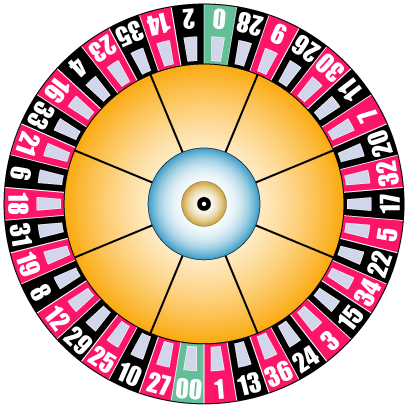Welcome to yet another edition of the only personal finance blog carnival worth reading, the Carnival of Wealth. Where we showcase relevant blog posts from the past week or so and turn them into something approaching a cohesive whole. We didn’t give any tax advice this year – there’s plenty of it in The Greatest Personal Finance Book Ever Written, plenty of which is relevant all year ’round, not just in mid-April – but we do have plenty of tax esoterica for you.
Did you know that April 15 has been the United States’ traditional income tax deadline only since 1955? It used to be March 15. Here’s another series of fun facts:
Federal income tax was instituted in 1861, to pay for the Civil War.
There was a basic personal deduction of $800 (that’d be 20,214 in current dollars) and a single, 3% (not a typo) rate on U.S. residents.
A year later, our first progressive tax: the deduction was lowered to $600, and income over $10,000 was taxed at 5%. However, the law specified that the tax would expire in 1866. (Apparently politicians in 1862 could predict when wars would end.) Fast forward 146 years, and no politician of either party would dare discuss eliminating the income tax. Alright, one. Then again, in 1866 our ancestors didn’t have an organization dedicated to “us(ing its) expertise to provide innovative solutions for our customers in support of their missions, and by so doing, foster an effective, sustainable, and transparent government for the American people”, whatever the hell that means.
One more thing. 2 historical tax collectors are famous enough to have their own Wikipedia pages; Simon Affleck and Jacob Gaón (the latter of whom may or may not have existed.) Do yourself a favor. Read their brief histories and see how previous generations handled tax collectors. On with the CoW:
Ken Faulkenberry at AAAMP Blog recently wrote about fundamental security analysis vs. technical analysis (a/k/a alchemy). This week he delves into the former, explaining the differences among the 3 major financial statements and why you need to familiarize yourself with them before buying stocks.
Roger the Amateur Financier questions when and whether you should (help) pay for your kids’ college tuition. Should you start saving when your kid is barely a foul thought in its father’s head? Should you offer to match whatever your kids can save throughout their adolescence? Roger’s post is grammatically fantastic and tries to address some important issues, but there’s one gaping omission:
Cost/benefit analysis. Like most parents, would-be parents, and financial bloggers, he doesn’t address the single most important criterion. What’s Junior going to study? It doesn’t matter how you finance an English literature degree, whoever earns it is never going to be able to recoup the investment. Better to attend trade school, which doesn’t require any multi-decade savings plan (and gets you earning money 4 years earlier). If your kid wants to study medicine or chemical engineering, however, there’s at least a discussion to be had about how and when to start saving.
Isn’t the tax deadline in Canada April 1? If it is, get a head start on 2013 by reading this post from Teacher Man at My University Money on how to file your return without spending unnecessary money at H&R Block.
Speaking of Canada, Boomer and Echo have 5 critical questions to ask your employer about your pension plan. Knowledge is power, which means ignorance is weakness. Your boss has your body and mind for dozens of hours a week. The least you can do is determine whether they’ll have your retirement, too.
(Sweet Christ, another post from a “coupon mom”? How many of you are there, anyway?)
The stellar Odysseas Papadimitriou at Wallet Blog strikes gold again. We received 2 posts this week on how to handle résumés. One of them was detritus, this is the other one. May we editorialize? Of course we may, it’s our carnival. Here’s the takeaway line from his post:
Personalize your cover letter 100%
When I say 100%, I mean 100%. First of all, employers can spot generic cover letters with a couple of customized fields a mile away.
We get generic emails every week here at Control Your Cash, idiots wanting “verry much to right a guestpost for your intesting website “ControlYourCash.com”” Has anyone ever responded positively to such blatant disregard? Swapping out one employer’s (or website’s) name for another in your template isn’t personalization, it’s laziness of the first order. Especially when you’re looking for a job. What better message to send to an employer than “I’m going to mail it in if you hire me. Here’s proof.”)
A couple of weeks ago we questioned the chart-formatting skills of Liana at CardHub. This week she showed us by offering 11 aesthetically pleasing charts, each with appropriate row height and column width.
Oh yeah, the content. Her post is an analysis of what’s happened to credit card interest rates, balance transfer rates etc. over the past year. Again, pay your freaking bills on time and those numbers will be merely of academic interest.
(Post rejected for using “needs” as a noun. Damn right that’s a droppable offense.)
Every week there’s a new entrant who doesn’t get what we do here, and thinks they can spend 30 seconds defecating out a post and we’ll run it. Sometimes, they get lucky. Consumer Grocery wants you to print out coupons, use them, and “share your goals and progress” on Facebook et al. Thanks, Consumer Grocery. Odysseas should consider himself flattered that his meticulously researched and comprehensive post shares a carnival with your recommendation to “make saving fun!”
Thanks again for stopping by. Our 6-part series on ProBlogger is now in its second week, and you can scarcely spend a day on Investopedia without reading us. We’ll be back here Wednesday with more goodness, and a daily Anti-Tip (located in the right column.) kthxbye




